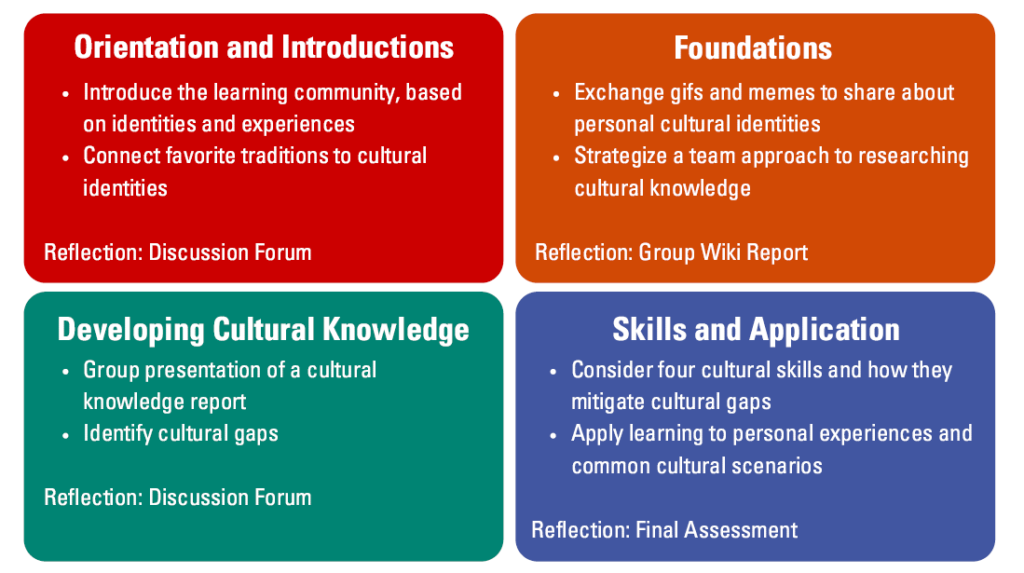
DCC In Your Classrooms
Gateway to Cultural Experiences
The Developing Cultural Competence certificate program allows NC State students to join students from partner institutions across the world in facilitated online discussions and cultural exchanges after completing a series of self-paced individual learning modules. Undergraduate and graduate students from all disciplines are encouraged to participate.
1750+
DCC certificate earners from NC State and our partner universities receive a digital credential
Flexible curriculum
The DCC curriculum is already used in credit-bearing courses, co-curricular programs, study abroad and exchange student orientations.
Global Learning For All
DCC provides a global learning experience for students to encourage future international engagements
Diverse Perspectives
The program is designed to accomplish goals 1 and 4 of the University’s new strategic plan.
- Strategic Goal 1: Empower students for a lifetime of success and impact.
- Strategic Goal 4: Champion a culture of equality, belonging and well-being in all we do.
“The DCC program was really helpful for me personally because I knew I was already interested in culture from when I took a cultural anthropology course last fall. Now after taking this course I have declared an International Studies minor while also pursuing the Global Perspectives Certificate.”
Arin Crow
College of Engineering
Course Outline

Instructional Design
GTI uses the TMC/Berlitz Cultural Orientations Model as our guiding framework for teaching and discussing culture. We define culture as the complex pattern of ideas, emotions and observable manifestations that tend to be expected, reinforced and rewarded by and within a particular group. Cultural competence is the perpetual process for individual growth in successfully navigating culturally diverse situations and working with people of other cultures. It involves five steps:
- open attitude
- self-awareness
- other-awareness
- cultural knowledge
- cultural skills